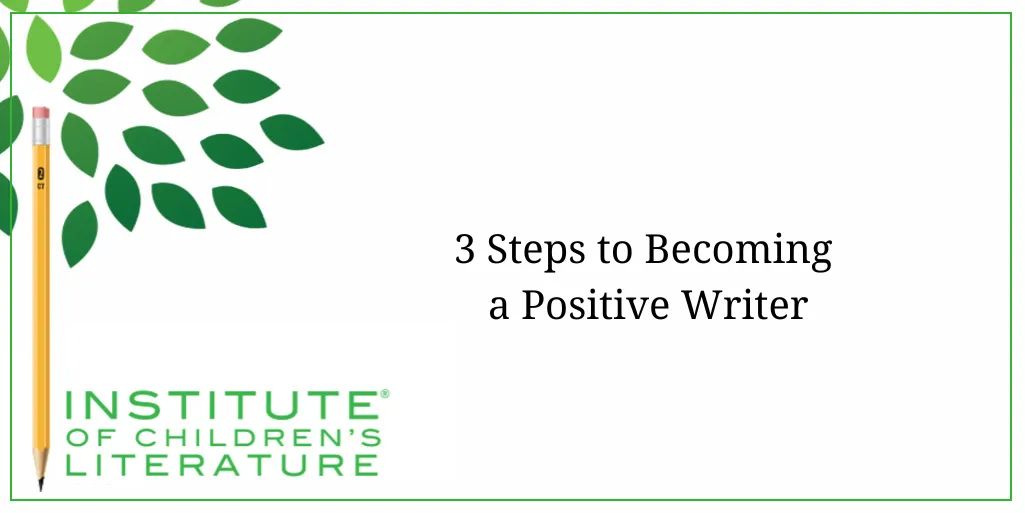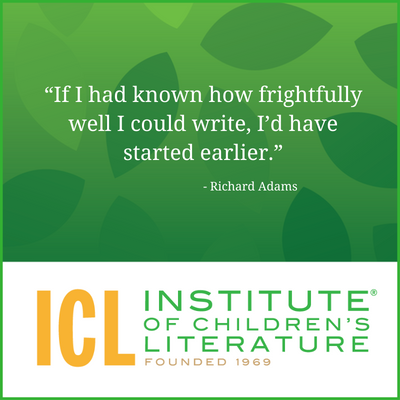
5 Ways Writers Can Prep for 2025 Goal Setting
Before we roll on to the new writing year, let’s harness our optimism for the blank slate before us and prepare for our 2025 Goal Setting just for writers.

Two of the most important ingredients for a good writing session are creativity and energy. Unfortunately, negativity depletes both of those. It’s hard to be creative when you’re unsure of your abilities or doubting your instincts, and it’s difficult to face the work of writing when you’re feeling drained by life. This is why one excellent goal choice for the new year is to become a more positive writer.
I was raised by a family that didn’t really believe in positive self-talk. Saying good things about yourself or your abilities equaled being a braggart, and that was bad. Unfortunately, negative self-talk was viewed as humble and good. This encouraged patterns of negativity that made it difficult to succeed. I often ended up undervaluing my skills and was shocked when editors responded positively to my efforts. On top of this, I was fearful of trying new things and stepping out because I didn’t believe in my own ability to succeed. I was caught in a negativity spiral that wasn’t helping me grow and succeed at the rate I was capable.

I wrote the positive remarks on individual slips of paper and put them in a jar on my desk. Each morning, I retrieved one of these and taped it to my monitor where I’d see it all day. Each time I saw it, I read it aloud. The human brain tends to believe the things it hears over and over. It’s part of why positive self-talk is so helpful. Each day I had a fresh, positive message to dwell on throughout the day. It slowly helped me change how I saw my writing. Now that doesn’t mean I didn’t recognize my need for improvement. I was still a long way from the success I sought, but as I felt better about my abilities, I produced better material and I had the energy for the job.
Not everyone around you is going to be supportive of your creative efforts. Sometimes no one around you seems to be supportive. This can come from negative habits in other people. This can come from not really understanding creative pursuits and their value. And this can come from darker places like jealousy or anger. But whatever causes negative messages to pour out of the people around you, it can be damaging to your creativity and energy as a writer.
The easy answer, of course, is to surround yourself with only positive people. Unfortunately, that’s a tall order, especially when some of the most negative voices might be family members. A two-fold approach helps. The first is to cultivate positive people. Seek them out. Join writing groups, attend writing workshops, and go to conventions. The energy, enthusiasm, and positivity of people dedicating themselves to writing is infectious and will go a long way toward increasing your own inspiration and positivity.
Consider starting a writing group in your area. Often you can lean on the resources of SCBWI (the Society of Children’s Book Writers and Illustrators) if you are a member, and they will help you form a supportive group that can meet in person to share writing and writing challenges. If you aren’t a member of SCBWI, you might try putting up a notice in your local public library. Libraries are often great places to connect with people who love to write since writers tend to be readers. Having regular get-togethers with a supportive group will help offset negative talk you may hear in other places.
Another thing I find helpful is to prepare myself for negativity with a kind of “anti-negativity” buffer. I don’t find it very useful to argue with negative people. In my experience, that only encourages more negativity. Instead, I arm myself with positive self-talk I can fill my head with as negative things are said. If someone says, “Are you still wasting time with all that writing?” I fill my head with the truth that success demands work, and I’m working toward writing success by doing the work of writing.
For anything negative that can be said about writing, there is a more positive way to look at it. Now, sometimes I’m in the mood to counter things out loud, so I try to have the means to do so. For instance, if someone says, “Don’t you feel like you’ve given enough time to this?” then I can say, “Interestingly enough, Richard Adams was fifty-two when Watership Down was published, and Frank McCourt was sixty-six when Angela’s Ashes was published. Both books sold over a million copies. Sometimes the only way to succeed is to keep trying.”
Another unfortunate side-effect of internalizing too much negativity is a hyper-sensitivity to valid critique. When writers have little self-worth, any rejection, any correction, can knock all the energy right out of them. Thus, it becomes hard to risk submission because it might lead to rejection. It becomes hard to risk critique because it might point out weakness and weakness is seen as bad. In reality, none of us is as good as we can be.
That’s one of the most wonderful things about writing: we are all growing and improving all the time.
The more books we read, the more we input words, phrases, organization, plots, and characterization into our heads. The more we write, the more we become aware of how all those tools can be used to build stories, articles, and books from the ideas borne in our minds.
Improvement and growth are vital to success, so we need to make friends with the reality that we all have a ways to go. When we recognize our weaknesses, we need to see those spots as signposts for future effort, not as proof of hopelessness. Retraining the way we approach weakness and rejection can be as important as a general trend toward positive self-talk. Valid manuscript critique is a means of seeing what you need to do. It isn’t a wall, it’s a path. Without seeing our weak areas, we’ll dash off wildly and wear ourselves out on efforts that don’t produce the results we want. So, part of becoming a positive writer is knowing that weakness isn’t failure.
That doesn’t mean rejection letters will ever become fun to receive. I do not enjoy rejection letters. Honestly, I don’t even really enjoy revision letters, not when they first arrive. After some sulking, which I never, ever do at my editor, I can reach a place where I hear and learn and then I can improve. But even though I continue to find these things uncomfortable, I do not shut myself off from them. I want to grow and improve. I want to try new things and branch out in new areas.
So, I’ve learned to risk discomfort. That doesn’t mean I always have the energy for it. Sometimes when I’m lagging, I still turn to my jar of positive messages to boost my mood. Most of the time, by redefining valid critique as a kind of roadmap to the success I want, I can face it instead of avoiding it. By replacing negative self-talk with positive, I’ve been able to build a career in this ever-challenging pursuit.
You can do it too. Trust me. I’m positive.
Find out your writing strengths and work on improving your weaknesses in an Institute of Children’s Literature writing course!
With over 100 books in publication, Jan Fields writes both chapter books for children and mystery novels for adults. She’s also known for a variety of experiences teaching writing, from one session SCBWI events to lengthier Highlights Foundation workshops to these blog posts for the Institute of Children’s Literature. As a former ICL instructor, Jan enjoys equipping writers for success in whatever way she can.

Before we roll on to the new writing year, let’s harness our optimism for the blank slate before us and prepare for our 2025 Goal Setting just for writers.

Writers can be thin-skinned when it comes to getting feedback on their work. Let’s look at 4 ways to positively deal with constructive criticism!

Rejection is part of the territory when it comes to being a writer. Today we offer reflection for writers to help redirect your efforts after a rejection.
1000 N. West Street #1200, Wilmington, DE 19801
© 2024 Direct Learning Systems, Inc. All rights reserved.
1000 N. West Street #1200, Wilmington, DE 19801
© 2024 Direct Learning Systems, Inc. All rights reserved.
1000 N. West Street #1200, Wilmington, DE 19801
© 2024 Direct Learning Systems, Inc. All rights reserved.
1000 N. West Street #1200, Wilmington, DE 19801
© 2025 Direct Learning Systems, Inc. All rights reserved.
1000 N. West Street #1200, Wilmington, DE 19801
©2025 Direct Learning Systems, Inc. All rights reserved. Privacy Policy.
3 Comments
Jan,
Thank you so much for this! I laughed out loud when I read that you sulk sometimes! I do, too. Unfortunately, sometimes I let that keep me out of my desk chair. I will try your technique of rereading positive comments.
Loved your final paragraph!